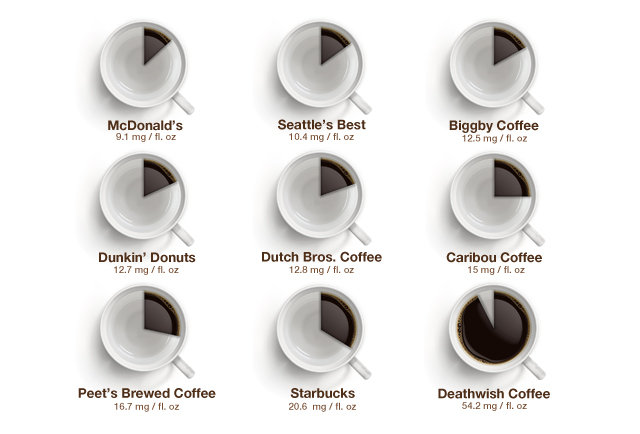Now that BabyKirk™ has come along, I've been doing some research into the effects of coffee on fetal development. Coffee is one of the few million things that you are not allowed to consume during pregnancy, because of course you and the baby will spontaneously combust and THE ENTIRE WORLD WILL END.
Coffee is an especially tough one for me because it has become so much more than a drink. It's actually a pretty significant part of my life. My morning routine legit doesn't exist unless I get a cup of coffee. At work, I perk up at just the though of my mid-morning joe. If I work nights, a quick stop at Starbucks is what gets me through the second half of my shift. So if this was something that had to go, I wanted to be sure that it really had to go.
I started out by browsing UpToDate. If you're not familiar with it, it's basically like medical Wikipedia. Really awesome, well-written, and well-researched medical Wikipedia. Subscribers only (sorry guys), it presents the lastest data on a variety of medical conditions, diagnostics, and treatments.
I expected to troll around for a while and maybe come across a link or two to some interesting studies on the topic, but to my surprise and delight, I stumbled upon a very comprehensive literature review titled "The Effects of Caffeine on Reproductive Outcomes in Women." Jackpot.
Turns off that coffee turns so many heads in the scientific world because of how accessible it is to the developing fetus:
Maternal caffeine metabolism declines significantly during pregnancy; the half life increases three-fold in the third trimester, reaching a t1/2 of 11.5 to 18 hours. The fetus metabolizes caffeine very slowly, mainly due to immaturity of caffeine-metabolizing hepatic microsome enzymes and lack of CYP 1A2 activity in the placenta. Therefore, even low maternal caffeine consumption can be expected to lead to prolonged fetal caffeine exposure, particularly when the mother is a genetically slow caffeine metabolizer. (Nisenblat, V, Norman, R, 2013).
This sounds exceptionally terrifying at first read, but the review goes on to explain that, despite the ready absorption, the effect of caffeine on the developing fetus is largely unknown. There is precious little literature on the effects of caffeine on human subjects, and the literature that does exist is of poor quality. Furthermore, there are a large amount of cofounders that have made studying the effects of caffeine difficult, most notably that the only women who consume large amounts of caffeine during pregnancy nowadays are typically doing other not-so-great things - like smoking, drinking, not accessing prenatal care - at the same time.
Poor evidence aside, the review did examine the effects of caffeine on a variety of reproductive outcomes. Here's the rundown:
1. Probability of conception (fecundability): Inconclusive, caution advised
2. Spontaneous abortion: More likely with >300 mg per day
3. Congenital anomalies: More likely with >300mg per day
4. Fetal Growth Restriction: Some good evidence that caffeine intake is associated with fetal growth restriction, but the range of concern varies between 200mg and 600mg
5. Preterm delivery: No significant association
6. Gestational Diabetes: Unclear (actually some studies showed that it was beneficial!)
7. Gestational Hypertension: Slightly increased risk, but no increased risk of preeclampsia
8. Post-partum depression and long-term effects on infant psychology: No significant association
Upon review, I feel that there is good reason to be cautious with caffeine intake during pregnancy. Given the outcomes, the most sensitive period (like everything in pregnancy) appears to be in the first trimester. After some consideration, my plan is to avoid caffeine entirely for the first twelve weeks. And then after, limit myself to <300mg daily. Although given the amount of caffeine typically found at your average Starbucks, that might be pretty difficult.
source: Huffington Post
Who knows? Maybe I'll start to like this whole decaffeinated tea thing.
Probably not.
**
Nisenblat, V., Norman, R. "The Effects of Caffeine on Reproductive Outcomes in Women." UpToDate. September 11, 2013. Published by UpToDate Inc. [0503-50.169.70.108-4E541A501A-6.14-178603391]



